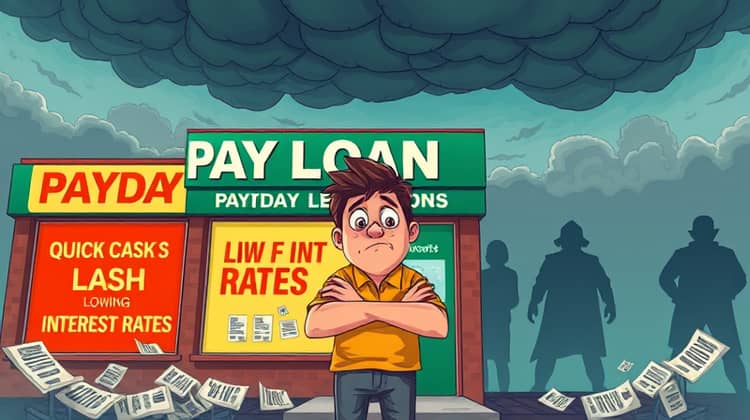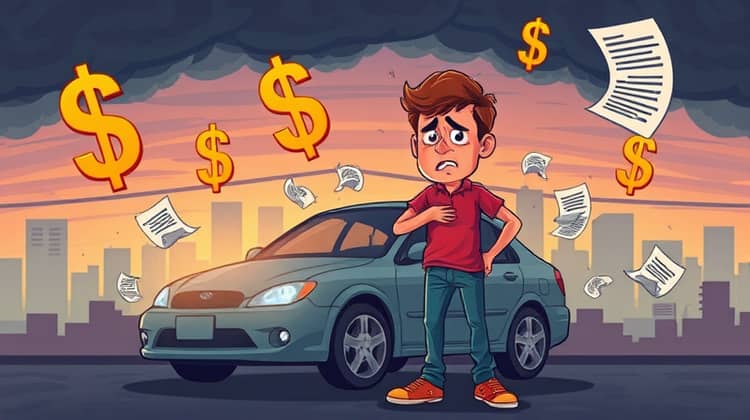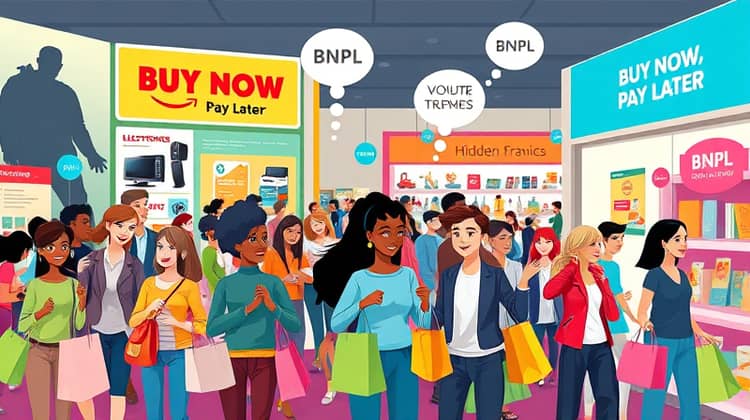Debt Traps: Avoid These 5 Common Financial Pitfalls

Debt traps can quietly envelop individuals, leading them into a spiral of overwhelming financial obligations that grow harder to manage over time. As we navigate the complexities of modern finance, it becomes crucial to recognize and sidestep common pitfalls that can lead to severe debt issues. In this article, we will explore five of the most notable debt traps and provide essential tips to help you avoid falling into them.
Staying financially savvy and informed can make all the difference when it comes to your economic well-being. By learning about these financial products and strategies, you can better protect yourself and maintain your financial stability. Let's dive into these common debt traps.
1. High-Interest Credit Cards

High-interest credit cards can seem like a convenient way to manage expenses and enjoy a little financial freedom. However, their high costs can turn them into a precarious trap for those who lack the discipline to pay off their balances each month.
The allure of accumulating points and cash back can lead consumers into a false sense of security, as they overlook the fact that interest rates can soar well above 20%. This can quickly compound debt, making it nearly impossible to pay off.
- Low introductory rates that revert to high APRs after a few months
- Late fees that can compound financial struggles
- Potential impact on credit score due to high utilization rates
Understanding the key risks associated with high-interest credit cards is vital. It’s essential to create a budget and pay off balances promptly to avoid accruing interest.
If you find yourself reliant on credit cards, exploring options to consolidate debt or transfer balances to lower-interest products might be worthwhile.
2. Payday Loans

Many people turn to payday loans as a quick fix for their immediate cash flow issues. These short-term loans might seem like a feasible solution to cover unexpected expenses, but their costs can spiral out of control rapidly.
With interest rates often exceeding 400%, users can find themselves unable to repay the loan when it comes due, leading them back to the same lender or another payday loan provider, thus creating a crippling cycle of debt.
- Extremely high-interest rates
- Short repayment terms
- Potential for aggressive collection practices
Payday loans can be deceptive, disguising themselves as helpful during financial emergencies. However, the long-term ramifications can be extraordinarily damaging, making it essential to exhaust all alternative options before resorting to such high-risk loans.
Consider seeking assistance from financial advisors or exploring community resources that can provide emergency funds without the steep costs associated with payday loans.
3. Auto Title Loans

Auto title loans allow individuals to borrow against the equity of their vehicles, which might appear beneficial to those needing quick cash. However, these loans typically come with exorbitant interest rates similar to payday loans.
If borrowers fail to repay the loan, they risk losing their vehicle altogether, leaving them without reliable transportation and deepened financial issues.
- High-interest rates that may exceed 200%
- Risk of losing your vehicle
- Short repayment periods that increase stress
Auto title loans can jeopardize not only your financial health but also your mobility. It’s crucial to consider how vital your vehicle is to your livelihood before diving into this type of debt.
Alternatives such as personal loans or credit unions often provide better interest rates and terms, allowing you to access funds without sacrificing your vehicle.
4. Buy Now, Pay Later (BNPL) Schemes

Buy Now, Pay Later schemes are increasingly popular, allowing consumers to purchase items upfront and pay for them in installments over time. While this may seem like a budgeting boon, many consumers aren’t fully aware of the hidden risks involved.
If not managed correctly, BNPL can lead to impulsive buying and unregulated multiple debts spread across various platforms, thus compromising overall financial stability.
- Hidden fees for late payments
- Missed payments can impact credit scores
- Potential to overextend financial limits
Understanding the terms of BNPL arrangements is vital for responsible usage. Always read the fine print and ensure you have a repayment plan to avoid falling into a cycle of debt.
Planning your purchases ahead and ensuring you can genuinely afford the payments will help you leverage BNPL without compromising your financial health.
5. Variable-Rate Student Loans

Variable-rate student loans may appear attractive due to their lower initial interest rates compared to fixed-rate loans. However, in times of economic fluctuation, these rates can increase significantly, causing financial stress for borrowers.
Having to manage fluctuating payments based on interest rate changes can lead to difficulty in budgeting and planning for future expenses.
- Monthly payments that can increase suddenly
- Risk of loan payments becoming unmanageable
- Potential for longer repayment terms to accumulate more interest
Before committing to a variable-rate student loan, consider your current financial situation and future earning potential to truly gauge your ability to manage potential payment increases. Being informed can save you significant financial strain down the line.
Tips to Avoid Debt Traps

Navigating the lending landscape can be daunting, but there are proactive steps you can take to avoid falling into common debt traps. Staying informed and ensuring you understand contractual terms will serve you well as you manage your finances.
By implementing disciplined financial practices and utilizing available resources, you can safeguard your financial future from the clutches of these tricky debt pitfalls.
- Create and stick to a budget that prioritizes savings and spending habits.
- Limit credit usage to avoid overspending and high-interest accumulation.
- Research all borrowing options before making a decision and compare terms from multiple lenders.
Implementing these strategies can enhance your ability to handle financial obligations effectively and with confidence. Consistent awareness and practice can act as a financial safety net, providing peace of mind.
Remember that staying informed and proactively managing your financial health is key to avoiding the pitfalls of debt.
Conclusion

Prioritizing financial health and being diligent in your borrowing practices is vital in order to avoid sinking into debt traps. Understanding the offerings available in the market empowers you to make more informed decisions.
By recognizing the common pitfalls outlined in this article, you can take proactive measures to safeguard your financial future and promote sustainable economic well-being.






